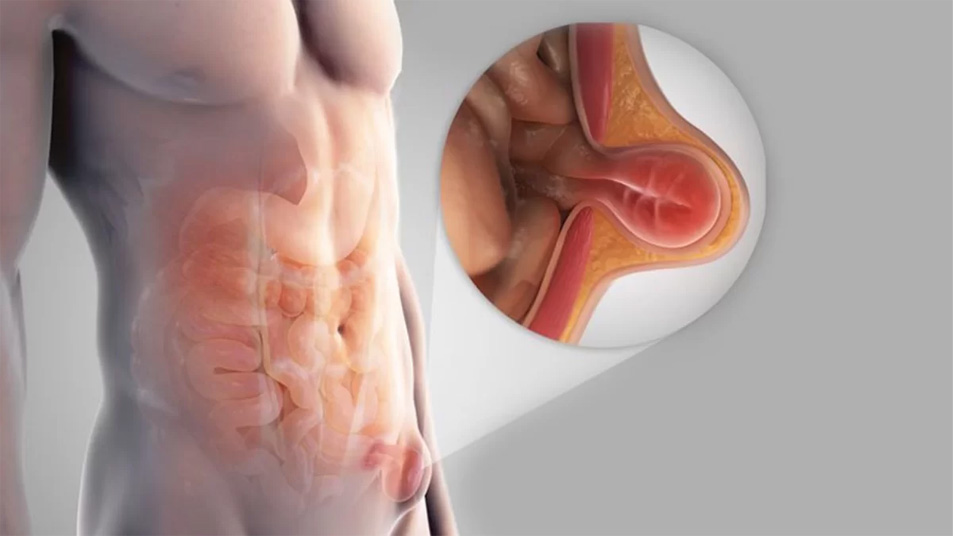
Incisional Hernia Surgery, Ventral Hernia Surgery Treatment in Konkan
Ventral Hernia
A hernia that passes through the muscles in your front abdomen is called a ventral hernia. Your belly or front portion is referred to as "Ventral." An internal organ or tissue that protrudes through a hole in the wall of its bodily cavity is called a hernia. Hernias typically pass through one of your abdominal walls, but not always.
Common causes of a Ventral Hernia :
A weakening in the muscle or tissue barrier that encloses it is forced through by a hernia. Sometimes the vulnerability is present from the beginning. In other cases, it's the result of a single incident, such as a surgery or accident. Additionally, it can occasionally occur gradually over time due to wear and strain.
Common contributing causes of ventral hernias include :
- A congenital weak spot (birth defect).
- Connective tissue diseases.
- Aging and natural muscle degeneration.
- Chronic obesity.
- Abdominal injury.
- Abdominal surgery.
- Pregnancy and childbirth.
- Chronic coughing.
- Chronic breathing difficulties (such as COPD or emphysema).
- Chronic constipation or straining to poop.
- Jobs involving frequent lifting or pushing.
Diagnosis of Ventral Hernia :
A ventral hernia is often discovered by a medical professional during a physical examination. Should they fail to see it immediately, they will ask you to experiment with other poses or gestures to bring it to light. Sometimes, in order to get a better picture of the hernia, pictures are taken. This might entail an MRI, CT scan, or abdominal ultrasound. They will closely inspect and try to see if they can gently press the hernia back in if they can see and feel it physically. This informs them of its severity and the potential need for therapy. Additionally, they will enquire in-depth about your symptoms, medical background, and potential explanations, including :
- The moment patient became aware of it.
- Whether it makes the patient uncomfortable.
- Patients long-term medical issues.
- Patients occupation.
- Patients lifestyle, exercise, and food choices.
Incisional, Ventral Hernia Surgery
An incisional or ventral hernia is a common multifactorial disorder that requires surgery to avoid complications including pain, discomfort, bowel obstruction, incarceration, and strangulation. To do herniorrhaphy, one must have a thorough understanding of the anatomy and physiology of the abdominal wall, surgical techniques, and the pathophysiology of hernias.
Ventral hernia repair or laparoscopic incisional surgery are common procedures nowadays. Its primary advantages include a lower chance of recurrence, the opportunity to fix any flaws at the moment of operation, a quicker recovery time, and less pain and hospital stay after surgery. But to do it well, you have to understand the process completely, pick the appropriate mesh, and deal with any possible side effects, such seroma, intestinal injury, enteric fistula, and recurrence. The surgeon and the techniques they use are very important in the treatment of incisional ventral hernias.
Among the possible types of hernia surgery repair techniques are:-
Open (traditional) hernia repair surgery,
Laparoscopic hernia repair surgery,
Open (traditional) hernia repair surgery :
To operate on the herniated tissue, a surgeon needs to make a single incision. The tissue and organs are repositioned, and surgical devices are used to sew the tissue back together to strengthen it. Surgical mesh is a common tool used by surgeons to strengthen tissue.
Laparoscopic hernia repair surgery :
One minimally invasive procedure is laparoscopic surgery. To get access to the area, a surgeon creates many tiny, half-inch-long "keyhole" incisions. A tiny camera known as a laparoscope is inserted through a single incision and projected onto a screen. They use long, slender tools to work through the others while keeping an eye on the screen.
Prognosis :
Recovery from most hernia procedures is rapid and straightforward. Complex hernias may require a more involved surgical procedure and a longer recuperation period. During the healing process, it's crucial to be careful not to pull or strain the healed hernia. After repair, 10% to 20% of ventral hernias are thought to recur.
